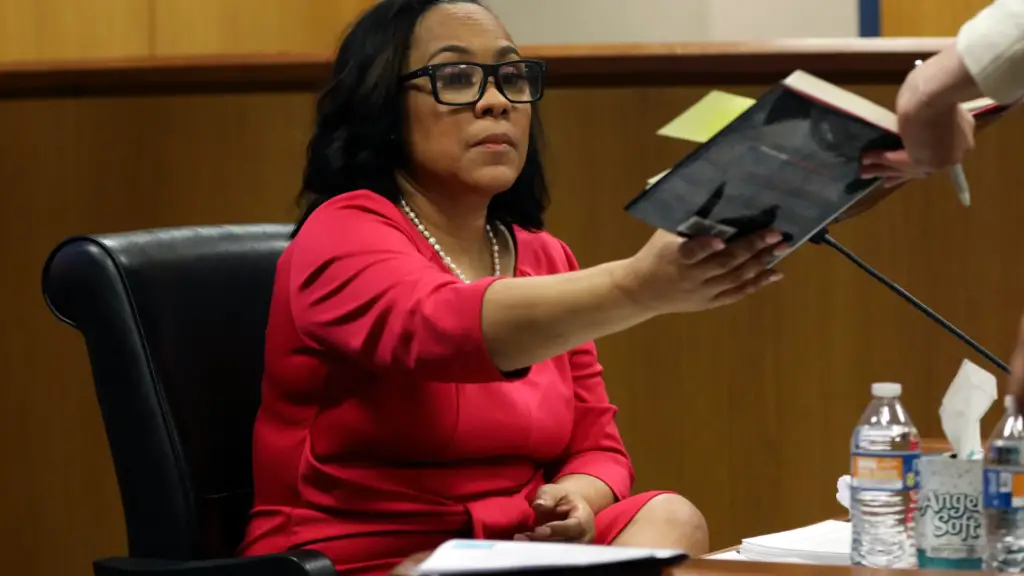Related Posts
Critical feedback to potential gag order implications—here are the four things you need to understand about Judge McAfee’s 23-page decision. Scott McAfee, the Georgia judge managing Donald Trump’s criminal case regarding his alleged attempts to reverse the 2020 election in Georgia, ruled on March 15 against excluding Fani Willis, the District Attorney of Fulton County, from the prosecution team. The judge found no conflict of interest arising from Willis’s personal relationship with her chief deputy.
Still, McAfee noted that this liaison presented a semblance of irregularity and presented Willis with an ultimatum: either she relinquishes her position or her deputy, Special Prosecutor Nathan Wade, does. Wade chose to resign a few hours later.
Despite this, the case against Trump holds significant political baggage, largely due to McAfee’s severe criticism of Willis.

Here are the main points from the 23-page verdict:
Willis’s Continuation on the Prosecution Team
The centerpiece of Judge McAfee’s verdict was confirming Fani Willis’s involvement in the prosecution. This decision was made after considering Willis and her team’s longstanding contribution to the Trump Rico case. The investigative team, whose members are mostly Willis’s senior deputies and other legal professionals, has been working on the case for years, emphatically parsing through its complexity, presenting evidence, and making their findings to the grand jury.
The potential outcomes had Willis been disqualified were significant. It could have led to the dismissal of her entire office, who are been deeply invested in the case. This could have resulted in the case being referred to a council of prosecutors. Uncertainty concerning the development of the issue could have been a serious threat to the case’s progress. Yet, Judge McAfee’s balanced opinion steered clear of this possibility. He presented Willis with a straightforward choice – either she steps down or her deputy does. This decision was to maintain the integrity of the legal process while addressing the perceived irregularities.
No Monetary Benefit as Trump Alleged
Judge McAfee’s verdict also considered financial wrongdoing charges from the Trump defense team. The main point of the argument by the Trump defenders was that Willis had participated in an illegal scheme. This scheme involved her relationship with Wade, which the Trump defenders alleged was to achieve an illegal and unfair gain.
Despite these allegations, the judge indicated that there was no evidence to support the idea that Willis gained any financial gains from her relationship with Wade. This is the total opposite of the accusation from Trump’s defense party. It also shifts the perspective of the implication of bribery onto the search for justice and away from the private motivation of the prosecutors.
It was striking that this result tackled the main aspect of the defense team’s argument. The decision rejected the allegations of a kickback scheme as the main reason Willis prosecuted the case. This ruling thus represents a significant development in the ongoing legal proceedings.
Severe Rebuke for Willis
Although Judge McAfee’s verdict allowed Fani Willis to keep her place in the proceedings, it was not without criticism of her actions and judgment. In absolute vehemence, McAfee condemned Willis for her personal relationship with her deputy and for her testimony before the court.
The judge emphasized that the intention of giving her permission to prosecute was not an indication that he accepted her deeds. Instead, he recognized the evidence as being insufficient to prove her ineligible for the position.
Despite not being legally disqualified, Willis and Wade were considered by the judge to imply a dreadful appearance of impropriety. This consequently demanded a major change in the composition of the prosecution team, which eventually led to one of the colleagues’ resignations. This chain of action may show the significance of drawing limits, especially between personal and professional ties within the legal system.
Gag Order Possibility for Willis
Judge McAfee’s ruling also touched on public commentary. The judge could not establish that Willis had caused intentional harm, so he could not disqualify her from the case. However, he criticized her public statements and even hinted at limiting her from public statements.
The judge hinted at the possibility of a gag order against the district attorney’s office. This development points to the delicate balance that legal professionals must maintain when discussing ongoing cases in public, especially in the context of high-stakes political trials such as this.
3/29/24 Update: Trump’s legal team has appealed the judge’s ruling.

